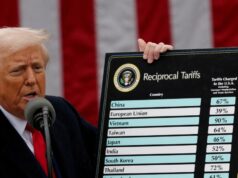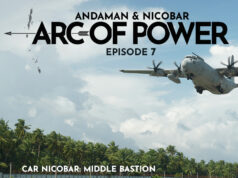“The strikes were a spectacular military success … Iran’s key nuclear enrichment facilities have been completely and totally obliterated.”
A triumphant President Donald Trump, flanked by key aides including Defense Secretary Pete Hegseth and Secretary of State Marco Rubio … claiming what else but total victory after striking Iran’s nuclear facilities in Natanz, Fordow and Esfahan.
Also, announcing what seemed like an ultimatum to Iran’s clerical leadership …
“Iran the bully of the Middle East must now make peace. If they do not future attacks will be far greater and a lot easier.”
Along with a forewarning of what could happen if Iran chooses the path of resistance.
“There will either be peace or there will be tragedy for Iran far greater than what we have witnessed over the last eight days.”
In other words, regime change that could see America actively back efforts to end the 46-year-rule of the ayatollahs. Is that possible, even feasible?
Former diplomat and Arabist Mahesh Sachdev, who tracks the Persian Gulf closely, argues that “He (Trump) will do it only if he can ensure he will win with minimum consequences for him, so he did it at the right time.”
But he also believes the roots of the clerical regime in Iran go deep.
“I think the mullahs are deeply entrenched, they are not going away or fade into the horizon. They have tapped both religious and patriotic sentiments and I think the fact that they were hit by Small Satan Israel and then America, the Big Satan, will play in their favour.”
In his view, the Americans may need to watch out for attacks on their bases or even diplomatic missions in the region and elsewhere. They will also need to look out for their allies, whether Western or Arab. But there’s a caveat here.
“The Americans and the Israelis know Supreme Leader Ayatollah Khamenei’s priority is the survival of the Islamic regime, they will be okay with that so long as Iran behaves.”
As for the people of Iran, while no major anti-regime or anti-mullah disturbances have been reported, it’s equally true that given how harshly the regime has responded in the past to mass protests, there may be no appetite to demonstrate in the streets.
“For India, there will concern over the shadow of war on energy supplies, that could be the first consequence. Will tankers be hit by the Iran Revolutionary Guard Navy in the Strait of Hormuz as has happened in the past during the 1980s Iran-Iraq war?”
India will also worry over the impact of this strike on the nine million strong Indian diaspora in the region. India has had little to say since Israel and Iran began their missile war.
Thirty eight years in journalism, widely travelled, history buff with a preference for Old Monk Rum. Current interest/focus spans China, Technology and Trade. Recent reads: Steven Colls Directorate S and Alexander Frater's Chasing the Monsoon. Netflix/Prime video junkie. Loves animal videos on Facebook. Reluctant tweeter.





